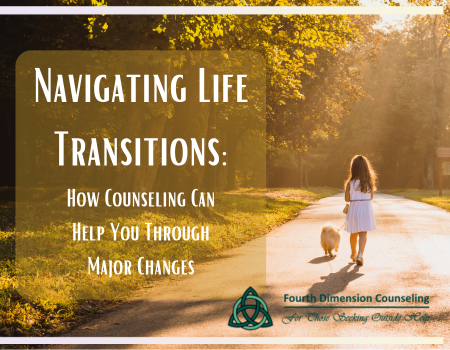Life is a journey marked by countless life transitions. From childhood to adulthood, career shifts to relationship changes, and personal growth milestones, these periods of transformation can be both exhilarating and overwhelming. While some individuals navigate these changes with relative ease, others may find themselves grappling with a range of emotions, uncertainties, and challenges.
Understanding Life Transitions
 Life transitions are periods of significant change that disrupt our routines and force us to adapt to new circumstances. They can be prompted by personal choices, external factors, or a combination of both. Common examples include:
Life transitions are periods of significant change that disrupt our routines and force us to adapt to new circumstances. They can be prompted by personal choices, external factors, or a combination of both. Common examples include:
- Major life events: marriage, divorce, parenthood, retirement
- Career changes: job loss, promotion, career change
- Health challenges: illness, disability, caregiving
- Loss and grief: death of a loved one, loss of a job or home
These transitions often come with a whirlwind of emotions, including anxiety, stress, sadness, confusion, and uncertainty. It’s normal to experience these feelings, but when they become overwhelming or interfere with daily life, seeking professional support can be beneficial.
The Role of Counseling
Counseling provides a safe and supportive space to explore your thoughts, feelings, and experiences during a life transition. A skilled counselor can help you:
- Process emotions: Counseling offers a platform to express your emotions openly and honestly, without judgment. This can help you gain a better understanding of your feelings and develop healthy coping mechanisms.
- Build resilience: Life transitions can test your resilience. A counselor can help you develop strategies to bounce back from setbacks, build inner strength, and adapt to new challenges.
- Develop coping skills: Counseling can equip you with practical tools and techniques to manage stress, anxiety, and other emotional challenges associated with life transitions.
- Set goals and make decisions: Navigating change often involves making important decisions. A counselor can help you clarify your values, explore options, and make informed choices aligned with your goals.
- Improve communication: Effective communication is crucial during life transitions. Counseling can enhance your communication skills, enabling you to build stronger relationships and navigate conflicts with greater ease.
- Foster personal growth: Life transitions can be opportunities for personal growth and development. A counselor can help you identify areas for growth and create a plan to reach your full potential.
The Counseling Process
The counseling process typically involves:
- Assessment: The counselor will gather information about your life circumstances, challenges, and goals.
- Goal setting: Together, you and your counselor will establish specific, measurable, achievable, relevant, and time-bound (SMART) goals for therapy.
- Exploration and understanding: You will have the opportunity to explore your thoughts, feelings, and experiences in a safe and supportive environment.
- Skill development: Your counselor will teach you coping strategies, problem-solving techniques, and other skills to manage life transitions effectively.
- Support and encouragement: The counselor will provide ongoing support and encouragement throughout the process.
Finding the Right Counselor
Choosing the right counselor is an important part of getting a successful therapeutic experience. Consider factors such as the counselor’s experience, theoretical orientation, and personality when making your decision. It’s also important to feel comfortable and connected with your counselor.
Embracing Change
Life transitions are inevitable, but with the right support, they can also be opportunities for growth and personal transformation. Counseling can provide the guidance, tools, and encouragement you need to navigate these challenges and emerge stronger on the other side.
